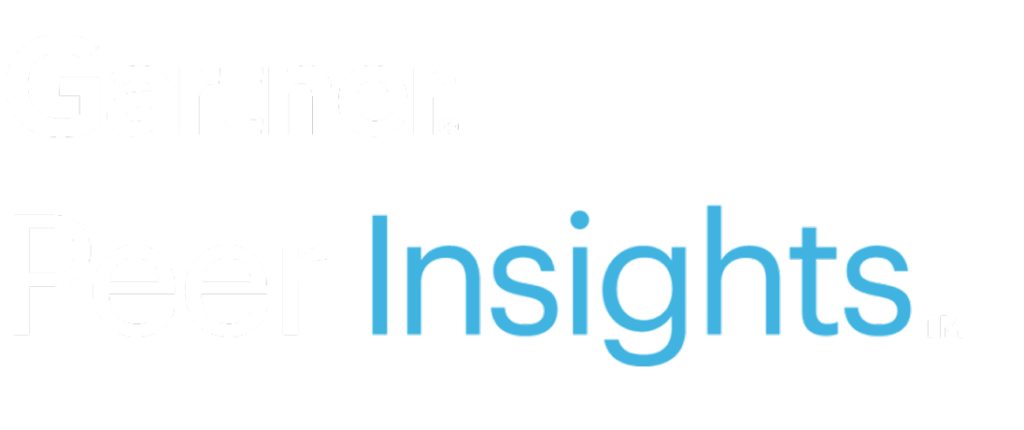PCI Software Security Framework Assessment
PCI SSF compliance can be complex, with unclear documentation requirements and time-consuming validation. MegaplanIT streamlines the process with expert guidance, efficient control validation, and high-quality reporting, helping you address gaps quickly, reduce delays, and achieve compliance with confidence.
- Decades of PCI Experience
- Work With a Team of SSA and SSLCA Assessors
- Expect Final Deliverables Without Delays
- Maintain Compliance Year After Year
- Consistent Expert Guidance
New Services Template Form 11 Nov
- Small businesses and Fortune 100 companies trust MegaplanIT with their cybersecurity and compliance needs.
What is PCI Software Security Framework (SSF)?
The PCI Software Security Framework (SSF)—comprising the Secure Software Standard and Secure Software Lifecycle (SLC) Standard—ensures payment software is securely developed and maintained. Validated applications support PCI DSS compliance, reduce testing, and, through the SLC assessment, allow vendors with frequent releases to self-attest changes while demonstrating strong secure coding. Here’s how MegaplanIT helps you maximize these benefits:
Independent Validation of Payment Software
Get an objective, third-party confirmation that your payment software meets the highest PCI security and compliance standards.
Complete Software Lifecycle Assurance
Ensure security and compliance are built into every stage of your software’s lifecycle: from design to deployment and ongoing maintenance.
MegaplanIT’s Five Phase Approach
A structured, step-by-step process that guides you from preparation to final reporting, ensuring clarity, efficiency, and confidence throughout your PCI SSF assessment.
Ensure Customer Confidence
Demonstrate your commitment to protecting sensitive payment data, boosting trust and credibility with customers and partners.
Work with PCI SSF Experts to Validate Your Secure Software Lifecycle Practices and Payment Software Security
Payment applications intended for customer installation, sale, distribution, or licensing can be assessed against the PCI Secure Software Standard (SSF). Applications used internally or for a single customer are not eligible. Successful payment application assessments are documented in a Report on Validation (ROV) and Attestation of Validation (AOV). Once approved, the software is added to the PCI SSC’s official listing of Validated Payment Software, demonstrating compliance and building trust with customers and partners. Software lifecycle assessment results under the SLC Standard are published in a Report on Compliance (ROC) and Attestation of Compliance (AOC).
These modules group specific requirements for different types of payment software, ensuring that each software type meets the appropriate security standards.
Core
Core in PCI SSF applies to all payment software and focuses on minimizing the attack surface, enforcing protection mechanisms like encryption and access control, securing production operations, and maintaining a strong software lifecycle through vulnerability management and regular updates.
Module A
Module A applies to payment software that stores, processes, or transmits account data and ensures the application properly handles and protects cardholder data and sensitive authentication data.
Module B
Module B applies to payment software for PCI-approved POI terminals and focuses on maintaining design and implementation documentation, mitigating attacks, and performing required security testing.
Module C
Module C applies to payment software using internet technologies and protocols, requiring implementation of essential security controls to protect web-based payment software from common attacks.
Why Clients Trust MegaplanIT

Organization Security Certification Services
5.0
Apr 24, 2025
5.0
Apr 24, 2025
MegaplanIT: Your Ideal Partner for Smooth PCI Assessment
“When I joined my organization, there was a lack of insight and expertise into the PCI process, as the previous analyst had left. MegaplanIT was fantastic to work with through this process — they provided their security and compliance expertise to drill down into our scope, align our controls and evidence, get our documentation in order, and felt like a true partner in this process.”
Reviewer Function
IT Security and Risk Management
Company Size
3B - 10B USD
IndustryRetail


Organization Security Certification Services
MegaplanIT: Your Ideal Partner for Smooth PCI Assessment
“When I joined my organization, there was a lack of insight and expertise into the PCI process, as the previous analyst had left. MegaplanIT was fantastic to work with through this process — they provided their security and compliance expertise to drill down into our scope, align our controls and evidence, get our documentation in order, and felt like a true partner in this process.”
Reviewer Function
IT Security and Risk Management
Company Size
3B - 10B USD
IndustryRetail


Organization Security Certification Services
5.0
Apr 23, 2025
5.0
Apr 23, 2025
Flexibility and Thoroughness: Highlights of MegaplanIT Engagement
“I have worked with MegaplanIT for over a decade spanning two different companies and covering several engagements including SOC, PCI and NIST audits and reports. They have always been flexible in deal structure, attentive in delivery and overall a joy to work with.”
Reviewer Function
Software Development
Company Size
<50M USD
IndustrySoftware Industry


Organization Security Certification Services
5.0
Apr 23, 2025
Flexibility and Thoroughness: Highlights of MegaplanIT Engagement
“I have worked with MegaplanIT for over a decade spanning two different companies and covering several engagements including SOC, PCI and NIST audits and reports. They have always been flexible in deal structure, attentive in delivery and overall a joy to work with.”
Reviewer Function
Software Development
Company Size
<50M USD
IndustrySoftware Industry


Organization Security Certification Services
5.0
Apr 23, 2025
5.0
Apr 23, 2025
“MegaPlanIT Stands Out As A Quality QSA Partner”
“MegaPlanIT is the PCI QSA service provider for my company. As a PCI-ISA I have worked closely with them over the last two years. I have found the audit team to be very knowledgeable, professional, and fair minded.”
Reviewer Function
IT Security & Risk Management Associate
Company Size
30B + USD
IndustryTransportation


Organization Security Certification Services
5.0
Apr 23, 2025
“MegaPlanIT Stands Out As A Quality QSA Partner”
“MegaPlanIT is the PCI QSA service provider for my company. As a PCI-ISA I have worked closely with them over the last two years. I have found the audit team to be very knowledgeable, professional, and fair minded.”
Reviewer Function
IT Security & Risk Management Associate
Company Size
30B + USD
IndustryTransportation


Organization Security Certification Services
5.0
Apr 23, 2025
5.0
Apr 23, 2025
MegaPlanIt: The Driving Force Behind Successful Auditing
“MegaPlanIt is a top tier organization. Their skilled auditors are the best. They are extremely accommodating yet hold very firm to the rules by which they evaluate. We love them and are who we are partly because of them. “
Reviewer Function
IT
Company Size
3B - 10B USD
IndustryBanking Industry


Organization Security Certification Services
5.0
Apr 23, 2025
MegaPlanIt: The Driving Force Behind Successful Auditing
“MegaPlanIt is a top tier organization. Their skilled auditors are the best. They are extremely accommodating yet hold very firm to the rules by which they evaluate. We love them and are who we are partly because of them. “
Reviewer Function
IT
Company Size
3B - 10B USD
IndustryBanking Industry


MegaplanIT Organization Security Certification Services
5.0
Apr 23, 2025
5.0
Apr 23, 2025
MegaplanIT’s Impressive Contribution to Maintaining Compliance Postures
“Overall experience with MegaplanIT has been great. Everyone we have worked with has been nothing but professional.”
Reviewer Function
IT
Company Size
<50M USD
IndustryIT Services Industry


MegaplanIT Organization Security Certification Services
5.0
Apr 23, 2025
MegaplanIT’s Impressive Contribution to Maintaining Compliance Postures
“Overall experience with MegaplanIT has been great. Everyone we have worked with has been nothing but professional.”
Reviewer Function
IT
Company Size
<50M USD
IndustryIT Services Industry


MegaplanIT Organization Security Certification Services
5.0
Apr 23, 2025
5.0
Apr 23, 2025
MegaplanIT: Aiding Growth in Online Payment Platforms with Expertise
“MegaplanIT has been our PCI Audit firm for approximately 8 years. They have a tremendous amount of expertise and experience that they use for our benefit. Their guidance and investment in understanding our environment has been critical in our rapidly growing online payment platform. They show flexibility when possible and when it doesn’t jeopardize our renewal date deadline.”
Reviewer Function
General Management
Company Size
500M - 1B USD
IndustrySoftware Industry


MegaplanIT Organization Security Certification Services
5.0
Apr 23, 2025
MegaplanIT: Aiding Growth in Online Payment Platforms with Expertise
“MegaplanIT has been our PCI Audit firm for approximately 8 years. They have a tremendous amount of expertise and experience that they use for our benefit. Their guidance and investment in understanding our environment has been critical in our rapidly growing online payment platform. They show flexibility when possible and when it doesn’t jeopardize our renewal date deadline.”
Reviewer Function
General Management
Company Size
500M - 1B USD
IndustrySoftware Industry

The MegaplanIT Difference
At MegaplanIT, we’re committed to supporting every step of your compliance journey, which is why we provide these services at no extra cost:
Year-Round Compliance Support
Expert insights from MegaplanIT consultants to help you navigate system changes that could impact your PCI compliance
Policy and Procedure Development
Guidance on developing accurate and effective policies and procedures to prevent costly compliance errors
Trusted Advisory and Remediation
Proactive support to identify gaps, remediate vulnerabilities, and achieve PCI DSS compliance efficiently and confidently
Compliance Project Management
Management of assessment timeline, milestone tracking throughout the engagement, and resource coordination to facilitate on-time completion
Migrating to the PCI Software Security Framework
The challenges, obstacles, and all the guidance you will need is right here!









